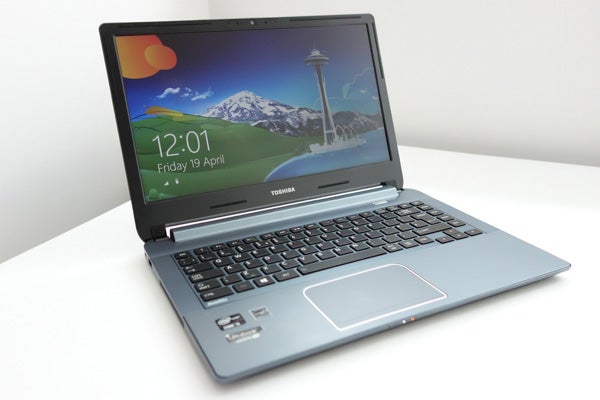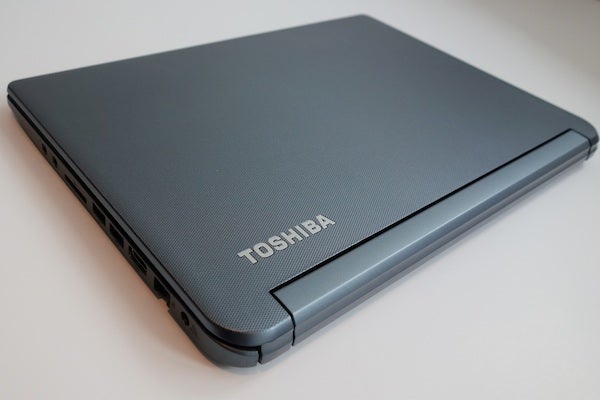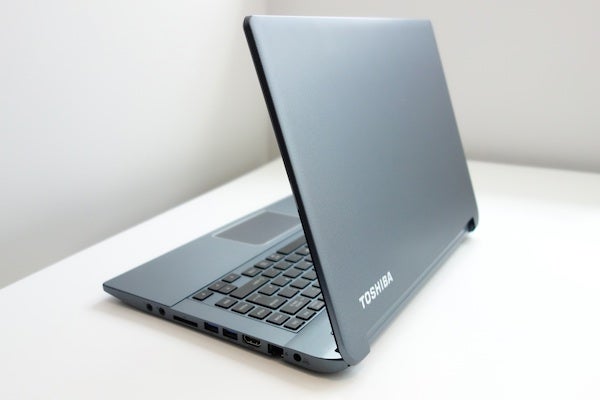Toshiba Satellite U940 Review - Toshiba Satellite U940 – Specs, Value and Verdict Review
Toshiba Satellite U940 – Specs, Value and Verdict
Toshiba's mid-priced Ultrabook offers a decent amount of bang for your buck as well as a few distinctive design touches

Sections
- Page 1 Toshiba Satellite U940 Review
- Page 2 Toshiba Satellite U940 – Keyboard, speakers and camera Review
- Page 3 Toshiba Satellite U940 – Specs, Value and Verdict Review
Toshiba Satellite U940 – Specs and Performance
Our review model of the Satellite U940 comes with an Intel Core i5 3337U dual-core CPU running at 1.7GHz, backed by 6GB of RAM. This is a pretty standard spec for a mid-range Ultrabook, and it matches the likes of the aforementioned Dell Inspiron 14z – though that also offers the option of an i7 CPU, which is missing here.
The U940 is more than up to the task of running everyday tasks and high definition video without a stutter.
If you’re a gamer, you won’t be wanting to play anything more than casual or older games on the U940, as it comes packing the stock Intel HD Graphics 4000 card that’s integrated into every Ivy Bridge chip. It’s a big improvement over previous integrated efforts, but it’s still no substitute for even a mediocre discrete graphics card.
That said, benchmark scores of 27fps on S.T.A.L.K.E.R: Call of Pripyat and 59fps on Trackmania Forever are perfectly respectable, so 3D gaming isn’t totally out of the question. Just don’t expect decent performance on the very latest games, or to be able to push the detail settings up beyond medium on older games.
The 750GB hard drive in our test unit is certainly capacious, but arguably more important is the 32GB SSD that comes as standard throughout the U940 range. The inclusion of this allows for super-quick boot-up times – we clocked it at around 10 seconds – and generally zippier performance, with regularly used applications and data kept ready to roll. The presence of this, alongside that i5 (or i3) CPU, fully justifies the Ultrabook label.
PCMark 7:
General Score: 4496 (4282 after software update)
Entertainment Score: 3489 (3120 after update)
System Score: 4283 (4302 after update)
Toshiba Satellite U940 – Battery Life
Toshiba boasts of up to four and a half hours of battery life for the Satellite U940, but it falls just short in our experience. Our standard test of dropping the brightness to 40 percent and running Powermark yielded a result of four hours and five minutes, which isn’t the longest-lasting Ultrabook experience around, but neither is it the worst. In fact, it’s exactly the same as one of its close rivals, the Dell Inspiron 14z – but then we weren’t overly impressed with that Ultrabook’s stamina either.
Toshiba Satellite U940 – Value
As we’ve already mentioned, Toshiba is listing this top of the range version of the Satellite U940 at £599, which places it between entry level laptops and higher-end Ultrabooks like the Toshiba Satellite U840W. There are rivals occupying this space, however, so the U940 can’t claim to be unique.
Ultimately, £600 is pretty good value for what is a reasonably mobile i5 and SSD-equipped Ultrabook, but you will notice a marked difference in build and display quality by paying a couple of hundred pounds more.
Verdict
The Toshiba Satellite U940 is a middle of the road laptop, but more importantly it’s a decent entry-level Ultrabook. It’s reasonably mobile, but offers decent performance thanks to a capable i5 (or an i3, if you want to cut costs further) processor and an SSD as standard.
On the other hand, it’s clear to see where Toshiba has made the cuts in order to come in at such a reasonable price. The U840W lacks the high quality feel of Ultrabooks further up the price scale, and its washed-out screen is arguably the biggest disappointment of all. It’s also not an option if you’re looking to get the most out of Windows 8’s bold new features, as that 14-inch display isn’t touch-enabled.
Still, if you’re looking for a tool that enables serious (non-graphical) portable productivity for half the price of those Ultrabook trailblazers, you could do a lot worse.
How we test laptops
Unlike other sites, we test every laptop we review thoroughly over an extended period of time. We use industry standard tests to compare features properly. We’ll always tell you what we find. We never, ever, accept money to review a product.
Trusted Score
Score in detail
-
Performance 7
-
Design 7
-
Screen Quality 5
-
Value 8
-
Features 7
-
Battery Life 6


